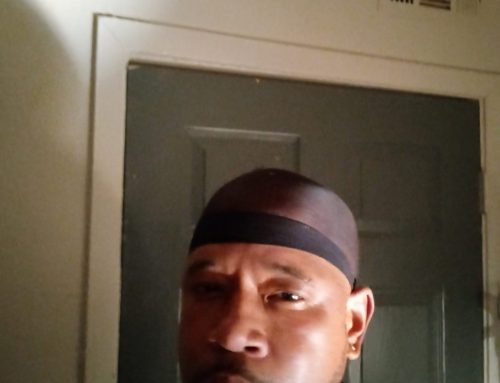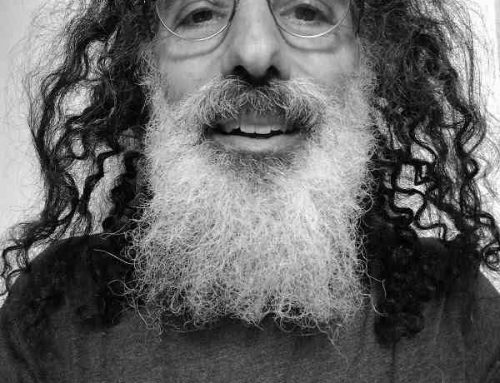My first thought was, “This is some hippy-dippy shit, right?”
Mindfulness sounded like something for crunchy granola type people, something for people trying to get in touch with the harmony of the universe or align their chakras with crystals and bath salts. It sounded corny. It sounded like a reincarnation of the fake it till you make it, pop on a plastic smile, and deny the reality of what’s happening positivity that grates on my nerves so hard.
To put it mildly, I was skeptical when my therapist started talking about using mindfulness to treat anxiety and depression.
But I was also desperate.
I needed something to deal with the depression. Medication only went so far, and at the time it wasn’t doing too much for my suicidal ideation, intrusive thoughts, and total tailspin of depression and anxiety I was in. I was in bad shape, and just getting worse.
Up till this point, my therapy had been focused on CBT, cognitive behavioral therapy. Basically, the idea is that behavior influences thoughts which influence feelings which influence behavior. When someone (me) gets caught up in depressed feelings or anxious thoughts, it makes our behaviors reinforce that thinking, which makes us feel the depression or anxiety even more. The idea in the therapy is to intervene in the thinking, challenge the negative, anxious, and intrusive thoughts, and break the cycle. Replace negative thinking with positive thoughts. Don’t let the thinking go unchecked.
CBT did work. I was getting better at challenging these negative thoughts, but the problem was they weren’t dissipating. I could fight them back, but they were still there under the surface. Having bipolar, my moods swing from one extreme to the other. So, when my mood swung downwards toward depression, the negative thinking would flood back in and I would have to battle them all over again while I was feeling overwhelmingly depressed and suicidal.
I needed something else to treat what was going on.
So, my therapist suggested we try some mindfulness exercises. Like I said, at first, I was skeptical, but I knew I needed something so I gave it a go.
Mindfulness is different than CBT (although the two can work well together). Instead of fighting the feelings and thoughts, I was told to embrace them, let them come, fell their full force, and then let them pass. It was as if they were clouds in the sky with the wind blowing them across my airspace. Instead of always have to counter every single intrusive, depressive, or anxious thought, I was allowed to admit that they existed, they were there in my brain, but they didn’t have to stay.
Along with embracing my feelings and thoughts came the practice of being present. Grounding myself in the moment, in what was happening around me, in the sounds I hear, the sights I see, the tactile experiences I have. When I am focused on what is immediately around me, it’s easier to let negative thoughts and feelings come and go. I’m not focusing on the anxious thoughts or the depressed feelings, I’m not feeding them by dwelling on them. Instead, I’m aware of the song I’m listening to, the food I’m eating, and the world I am currently experiencing.
Don’t get me wrong, I still feel depressed and anxious. Hell, I’m going through a depressive mood swing right now. But things are different since I started practicing mindfulness. It’s easier to move forward because I’m not fixated on the negative thought or emotion. It’s easier to let those feelings fall into the background and not be the controlling force of my life.
The combination of the right meds and mindfulness has been a huge step forward for me living with bipolar. It’s not always easy, but it’s something I can do. Something I can manage. It still takes vigilance on my part, but I don’t feel the exhaustion of having to fight every single little negative thought that bursts into my brain unwelcome and unannounced. Instead, I can acknowledge that it’s there, that it happened, that it is saying something, but I can also let it fly out of my head just as easily as it flew in.
Mindfulness works for me. It has changed my perspective on treatment and what it means to live with mental illness. It is an invaluable tool I now have in my bag.
I’m not trying to say it’s the silver bullet for mental illness, nor am I suggesting that the same sort of mindfulness will work the same for everyone. But it’s worth a shot in my opinion. As a treatment plan, as a tool, it does work. It’s something that has enriched my life and I am a better person for practicing it.
Turns out, it’s not some hippy dippy shit after all.
This is part one of a mindfulness series by Aaron Smith. Stay tuned for more on this topic.
My name is Aaron J. Smith (aka CulturalSavage). I am in my thirties, a father, a writer, a dreamer, and kind of a mess.
When I was 28, I was diagnosed Bipolar 2. I write about what a life with a mental illness looks like. I’m an advocate for removing the stigma of mental health. I’ve been featured on HuffPost live to talk about living with a mental illness and spoke in 2014 and 2015 at the Shattering Stigma conference.
I’ve been blogging for 10 years or so and am in the never-ending process of writing. I currently am featured in Father Factor, The Stigma Fighters Anthology Volume 1 and was a staff writer for Bedlam Magazine. I am also a contributor to The Mighty and The Good Men Project.
My family and I live in Portland, OR.
Thanks for reading. If you like my words and my work, would you consider helping me support CulturalSavage?
Feel free to follow me on Twitter and Facebook.








I love mindfulness practices.